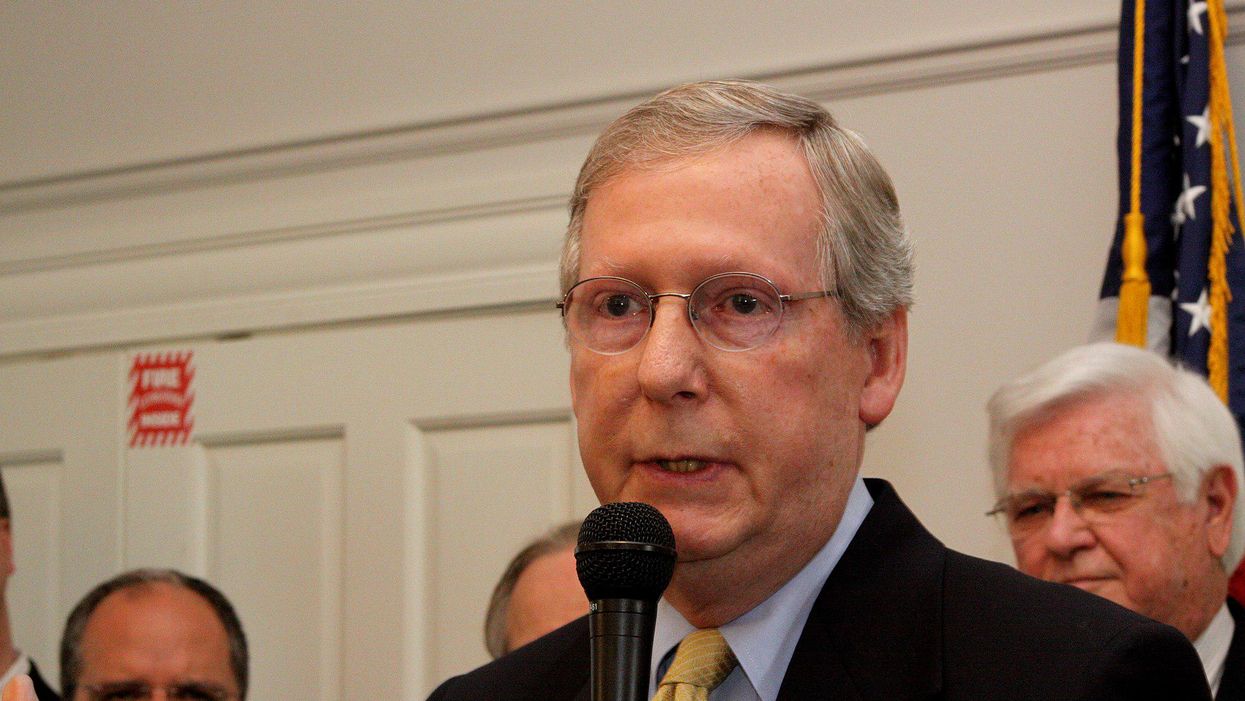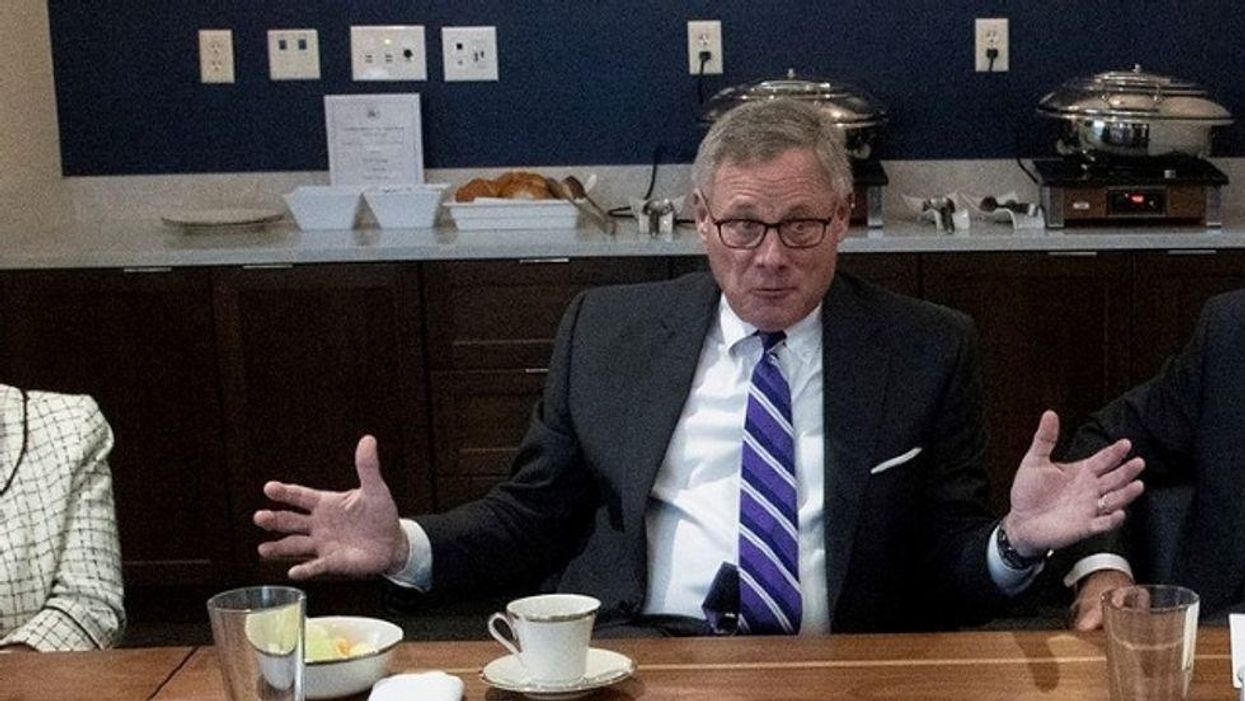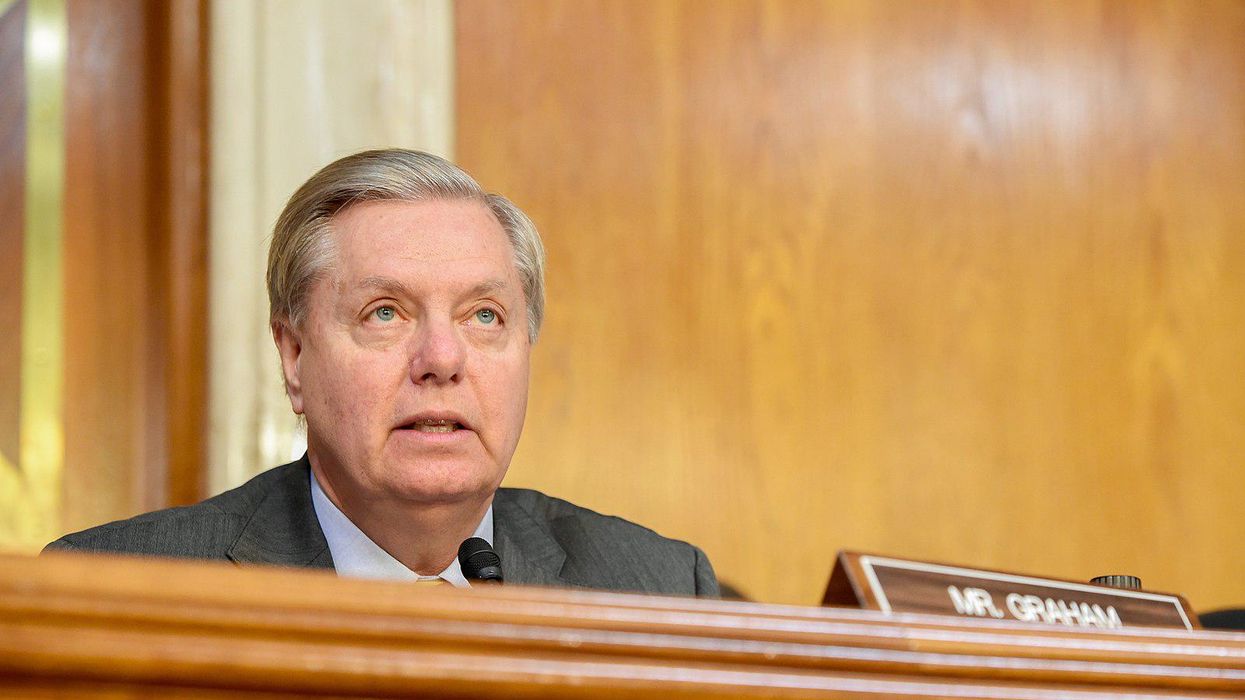Fearful Senate Republicans Will Filibuster To Stop Capitol Riot Commission
Reprinted with permission from American Independent
The odds that the Senate will pass a bipartisan commission to study the origins of the Jan. 6 riot at the Capitol are growing increasingly slim, as Senate Republicans are coming out one by one to say they do not support the probe.
Even Republicans who voted to convict Donald Trump for inciting the violent insurrection say they do not support the commission, twisting themselves in pretzels to justify their decision.
And that makes it increasingly likely that the commission will be the first thing Republicans filibuster during President Joe Biden's tenure. Current filibuster rules say that legislation in the Senate must garner 60 votes in order to proceed. Given that the Senate is split 50-50 along partisan lines, that means Democrats need 10 GOP votes to pass bills.
"I don't think there will be 10 votes on our side for it," Sen. Mike Braun (R-IN), told Politico. "At this stage, I'd be surprised if you're gonna get even a handful."
Senate Majority Leader Chuck Schumer said he will bring the commission up for a vote, whether or not it has enough GOP support to avoid a filibuster — meaning that if 10 Republicans do not vote in favor of the commission, it will be officially blocked.
"Senate Republicans can show everyone if they want to pursue the truth about January 6th or just want to cover up for Donald Trump and insurrectionists," Schumer tweeted on Thursday. "I will bring the House-passed legislation for the January 6th Commission to the Senate floor for a vote."
Republicans who have come out against the commission have falsely claimed it's not bipartisan and will be used as a witch hunt by Democrats.
"The current commission proposed by Speaker Pelosi and House Democrats appears to be a platform to score partisan political points," Sen. Thom Tillis (R-NC) said in a statement about why he opposes the commission.
The framework of the commission, however, was brokered by the Democratic chair of the House Homeland Security Committee and the GOP ranking member on that same body.
The members of the commission would be equally appointed by Republican and Democratic leaders in Congress, according to the agreement. And any subpoenas would require a majority vote, meaning there would need to be buy-in from the GOP-appointed members.
Senate Minority Leader Mitch McConnell, who came out against the commission on Wednesday, said the arrests by federal law enforcement are sufficient, even though the arrests will not lead to a comprehensive report about what went wrong and how to prevent future attacks like the Jan. 6 insurrection again. That's something a commission would explicitly do.
Even Sen. Richard Burr (R-NC), one of the seven Republicans who voted to convict Trump of inciting the insurrection, came out against the commission.
Burr told Politico that part of his opposition to the commission is that it would drag into the midterm elections.
Multiple GOP lawmakers have said that they believe the commission could hamper Republican chances of taking back the House and Senate in November 2022, with Rep. Liz Cheney (R-WY) saying that a probe could uncover that some Republican lawmakers played a role in the attack.
"I want our midterm message to be on the kinds of things that the American people are dealing with: That's jobs and wages and the economy and national security, safe streets and strong borders — not relitigating the 2020 elections," Sen. John Thune (R-SD) told CNN.
Republicans filibustering a bipartisan commission to probe a deadly attack on democracy gives progressive Democrats who have been railing against the arcane Senate procedure more fuel to their argument that the filibuster must go.
"Filibustering a bipartisan Commission regarding the January 6 insurrection is a three dimensional way to make the point that the filibuster is primarily a destructive force in American politics," Sen. Brian Schatz (D-HI) tweeted.
Published with permission of The American Independent Foundation.












